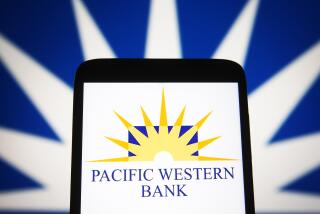PUC Alleges Pacific Bell Hid Revenue
- Share via
The California Public Utilities Commission on Thursday accused SBC Pacific Bell of hiding nearly $2 billion in revenue over three years and called on the state’s largest local phone company to refund $349 million to customers.
Although one of the largest in state history, the refund recommended in an independent audit is expected to be vigorously contested by PacBell.
“We disagree with the fundamental conclusion of this report that we owe our customers $350million in refunds,” said John Britton, a spokesman for SBC PacBell, which recently changed its name to reflect its ownership by San Antonio-based SBC Communications Inc., the nation’s second-largest local phone company. “We’ll work with the commission, and where appropriate, we’ll make corrections. But we’re confident that our accounting is consistent with CPUC requirements.”
As a regulated utility, PacBell must follow special accounting requirements for its local phone business in California. The irregularities alleged in the audit deal only with those special requirements and do not pertain to the company’s financial statements filed with the Securities and Exchange Commission.
But the PUC’s rules are important because they establish how much the state’s two largest phone companies, PacBell and Verizon California, can charge customers.
High levels of earnings were supposed to be shared with customers in two of the three years audited.
The report by Kansas-based Overland Consulting covered 1997, 1998 and 1999 and found that PacBell overstated expenses and assigned many key phone company functions to SBC affiliates outside the PUC’s purview, making the company “harder to track and evaluate.”
“The transfer of functions out of the telephone company has the potential to significantly reduce the control and authority the CPUC has traditionally exercised over regulated telephone operations,” the report stated.
Consumer advocates said an increasingly complex telecommunications landscape--in which companies operate dozens of businesses--makes it more difficult to hold individual operating units accountable.
“If the company is able to inflate costs, it can reduce the amount of money it has to share with its customers,” said Michael Shames, executive director of the Utility Consumers Action Network in San Diego. “In the non-regulated world, that’s called fraud.”
“It’s pretty clear from this report that ratepayers have been robbed,” said Regina Costa, telecommunications research director for the Utility Reform Network, an advocacy group based in San Francisco.
The report comes at an awkward time for PacBell, which is lobbying for state approval to let it enter the long-distance phone market in California. In states where local phone companies are allowed to provide long-distance service, the local carriers often are able to edge out long-distance providers such as AT&T; Corp. That’s because local carriers can sell a suite of services when consumers call to set up phone service.
For instance, SBC last year signed up more than 1 million customers in less than six months after it was allowed to sell long distance alongside its local service in Texas. In California, PacBell provides local phone service for more than 90% of residents.
The findings in Thursday’s audit echo a similar investigation of Verizon California, the state’s second-largest local phone company. That audit, conducted last year, concluded that Verizon misreported $112 million in “excessive profit” over three years and recommended the entire amount be refunded to consumers. Verizon is disputing the findings.
In PacBell’s case, auditors found that the company incorrectly posted expenses, including income taxes, pension and retirement costs, and the depreciation costs of its plants between 1997 and 1999 and “substantially understated” its revenue.
If the report’s estimates of PacBell’s profit are correct, the company must refund about $3 to an average consumer with a $45 monthly phone bill. Refunds would be higher for those with larger bills.
But advocates and industry analysts say any refund would be a long time coming. Negotiations between the company and the state could whittle down that amount, and the hearing process scheduled to conclude in December could well be delayed.
“This kicks off a process that will play itself out over many months,” said Jeff Kagan, an independent industry consultant in Atlanta. “This is positioning. At the end of the day when the negotiations are done, the number I’m sure will be a fraction of the $350million, if anything at all.”
SBC last year reported more than $7.2 billion in profit on revenue of $46 billion. SBC shares fell 55 cents to $36.50 on the New York Stock Exchange.


